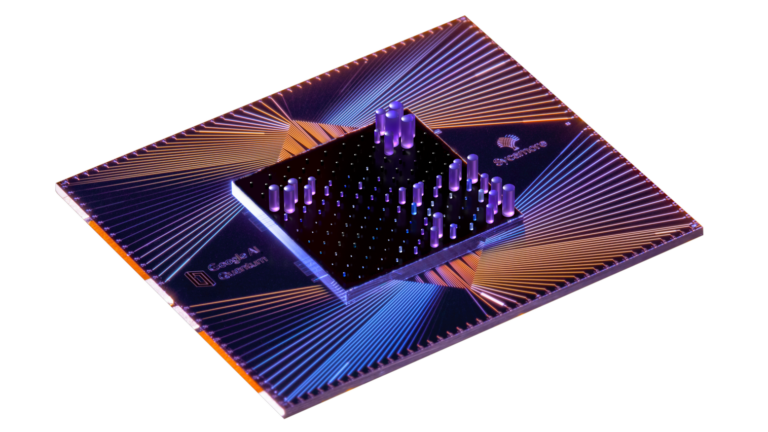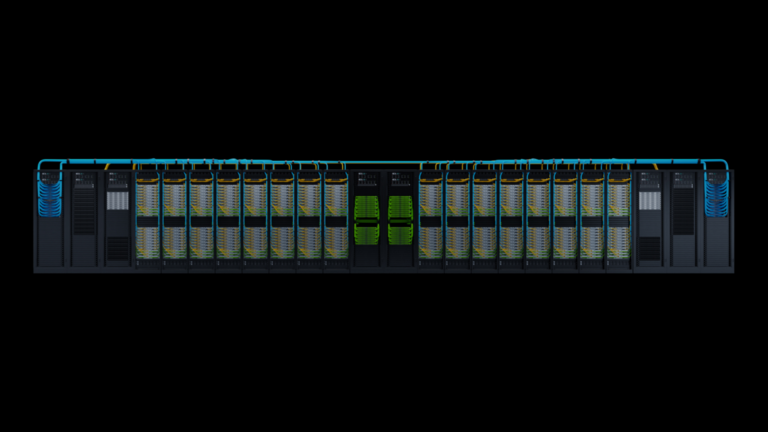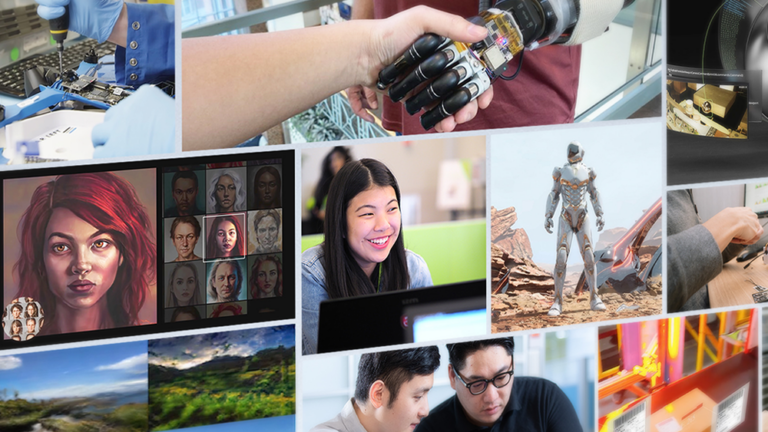
NVIDIA cuQuantum is an SDK of optimized libraries and tools that accelerate quantum computing emulations at both the circuit and device level by orders of magnitude. With NVIDIA Tensor Core GPUs, developers can speed up quantum computer simulations based on quantum dynamics, state vectors, and tensor network methods by orders of magnitude. In many cases, this provides researchers with simulations��
]]>
Quantum dynamics describes how complex quantum systems evolve in time and interact with their surroundings. Simulating quantum dynamics is extremely difficult yet critical for understanding and predicting the fundamental properties of materials. This is of particular importance in the development of quantum processing units (QPUs), where quantum dynamics simulations enable QPU developers to��
]]>
NVIDIA cuQuantum is an SDK of optimized libraries and tools for accelerating quantum computing workflows. With NVIDIA Tensor Core GPUs, developers can use it to speed up quantum circuit simulations based on state vector and tensor network methods by orders of magnitude. cuQuantum aims to deliver at the speed of light on NVIDIA GPUs and CPUs for quantum circuit simulations.
]]>
Quantum computing has the potential to revolutionize various aspects of industry, ranging from numerical simulations and optimization of complex systems to machine learning (ML). Many computational challenges within the automotive industry are well-suited for quantum computing, including the development of novel materials, efficient design of parts, optimal manufacturing processes��
]]>
Heterogeneous computing architectures��those that incorporate a variety of processor types working in tandem��have proven extremely valuable in the continued scalability of computational workloads in AI, machine learning (ML), quantum physics, and general data science. Critical to this development has been the ability to abstract away the heterogeneous architecture and promote a framework that��
]]>
QHack is an educational conference and the world��s largest quantum machine learning (QML) hackathon. This year at QHack 2023, 2,850 individuals from 105 different countries competed for 8 days to build the most innovative solutions for quantum computing applications using NVIDIA quantum technology. The event was organized by Xanadu, with NVIDIA sponsoring the QHack 2023 NVIDIA Challenge.
]]>
As of March 21, 2023, QODA is now CUDA Quantum. For up-to-date information, see the CUDA Quantum page. Quantum circuit simulation is the best means to design quantum-ready algorithms so you can take advantage of powerful quantum computers as soon as they are available. NVIDIA cuQuantum is an SDK that enables you to leverage different ways to perform quantum circuit simulation. cuStateVec��
]]>
As of March 21, 2023, QODA is now CUDA Quantum. For up-to-date information, see the CUDA Quantum page. Quantum algorithm researchers in government, enterprise, and academia are interested in developing and benchmarking novel quantum algorithms on ever-larger quantum systems. Use cases include drug discovery, cybersecurity, high energy physics, and risk modeling. However��
]]>
Quantum computers, still in their infancy, are influencing a new generation of simulations already running on classical computers, and now accelerated with the NVIDIA cuQuantum SDK.
]]>
As of March 21, 2023, QODA is now CUDA Quantum. For up-to-date information, see the CUDA Quantum page. Quantum circuit simulation is critical for developing applications and algorithms for quantum computers. Because of the disruptive nature of known quantum computing algorithms and use cases, quantum algorithms researchers in government, enterprise, and academia are developing and��
]]>
NVIDIA revealed major updates to its suite of AI software for developers including JAX, NVIDIA CV-CUDA, and NVIDIA RAPIDS. To learn about the latest SDK advancements from NVIDIA, watch the keynote from CEO Jensen Huang. Just today at GTC 2022, NVIDIA introduced JAX on NVIDIA AI, the newest addition to its GPU-accelerated deep learning frameworks. JAX is a rapidly growing��
]]>
The past decade has seen quantum computing leap out of academic labs into the mainstream. Efforts to build better quantum computers proliferate at both startups and large companies. And while it is still unclear how far we are away from using quantum advantage on common problems, it is clear that now is the time to build the tools needed to deliver valuable quantum applications. To start��
]]>
Discover how the new PennyLane simulator device, lightning.gpu, offloads quantum gate calls to the NVIDIA cuQuantum software development kit to speed up the simulation of quantum circuits.
]]>
Our weekly roundup covers the most recent software updates, learning resources, events, and notable news. This week we have several software releases. Software releases The NVIDIA HPC SDK is a comprehensive suite of compilers, libraries, and tools for developing accelerated HPC applications. With a breadth of flexible support options, users can create applications with a��
]]>
Quantum computing aspires to deliver more powerful computation and faster results for certain types of classically intractable problems. Quantum circuit simulation is essential to understanding quantum computation and the development of quantum algorithms. In a quantum circuit, the quantum device is composed of N qubits, and computations are performed by applying a sequence of quantum gates and��
]]>
Quantum computing aspires to deliver more powerful computation in faster time for problems that cannot currently be addressed with classical computing. NVIDIA recently announced the cuQuantum SDK, a high-performance library for accelerating the development of quantum information science. cuQuantum recently was used to break the world record for the MaxCut quantum algorithm simulation running on��
]]>